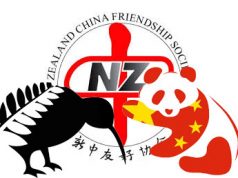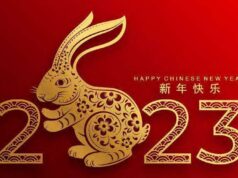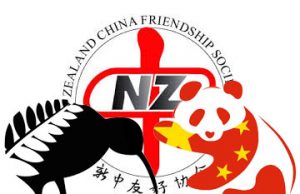On Saturday 17 February, NZCFS, in partnership with the New Zealand Xinhua Chinese School and Jinan University, organised and hosted a symposium on Chinese language learning and writing overseas, with a specific focus on New Zealand. The symposium was held in the Walter Nash Centre in Taitā, Lower Hutt with the support of the China Embassy and was attended by writers and teachers of Chinese language in the Wellington region.
Speakers at the symposium included the Dean of Jinan University Media and Communication School Research Institute, well-known media studies scholar Professor Zhang Jinsheng; the Chief Executive of Jinan University Press Dr Yang Yi; and the Deputy Executive of Jinan University Press and editor of Chinese New Zealand author Li Tao’s book New Zealand: The Untouched World, Madam Li Zhan.
Online speakers included the Dean of Jinan University Foreign Languages School and Vice President of the World Chinese Literature Association, well-known Asian Studies scholar Professor Pu Ruoqian; and Gender and Social Studies scholar from Beijing Capital University, Professor Wang Hongqi.
In a separate ceremony, the New Zealand National Library was presented with a copy of Li Tao’s book New Zealand: The Untouched World (2023 edition) by Jinan University Press.
Many readers will be familiar with the Chinese language text books published by Jinan University Press. JNU is the authoritative press in China supported by the State Chinese Overseas office to edit and publish Chinese language text books for Chinese communities outside mainland China.
In the first part of the symposium, attendees had the opportunity to present feedback on the latest editions of the Chinese language text books and hear JNU’s plans for future editions.
The encouragement of Chinese language learning is an important adjunct to the work of NZCFS. Not only does learning the Chinese language provide insight into Chinese culture, history, and literature, it also opens the door to a better understanding between Chinese and non-Chinese communities worldwide.
Later this year, we will be celebrating Chinese Language Week — a Kiwi-driven initiative launched ten years ago in 2014 to increase Chinese language learning in New Zealand. This national programme, the first of its kind to be developed in any Western country, promotes fun and practical ways for Kiwis to learn Chinese.
The second part of the symposium was on Chinese writing overseas. As new generations of Chinese people have emigrated to New Zealand and merged into New Zealand society and culture, they have begun to develop their own representation of their life stories and identities. Through films, books and art works, these Chinese Kiwis are telling the story of their journey towards cross-cultural understanding and settlement in New Zealand.
One of these new Chinese Kiwis is author and documentary filmmaker Li Tao.
Prior to the symposium, attendees were invited to watch a rescreening of Li’s documentary film Waves. Set in Pōneke in the early 2000s, and featuring local schools Hutt Valley High, Hutt International Boys’ School, and Chilton St James, the documentary follows four students Ken, Rose, Lin, and Jane as they come to grips with living and studying in a new country.
Ten years on, Li has revisited these same students, tracing the different paths their lives have taken over the intervening decade. The sequel Waves 2 is currently in final cut, and its local screening is keenly anticipated. Other documentary projects include Returning Home, Li’s observations on an older generation of Kiwi Chinese rediscovering their family history, and based on her own personal journey.
Those familiar with Li’s film work may not realise that she is also an accomplished author. Her collection of essays New Zealand: Untouched World was published in a new edition by Jinan University Press last year and has been hailed as an accomplished literary work bridging Chinese and New Zealand cultures.
These works of Li Tao were examined by our learned speakers in the context of cross-boundary, non-fiction, cross-cultural communication. The New Zealand China Friendship Society is proud to support Li’s work and, in doing so, promote a better understanding of China. If successful cross-cultural communication is the goal, then Li’s work shows us some of the steps that we must all take.












